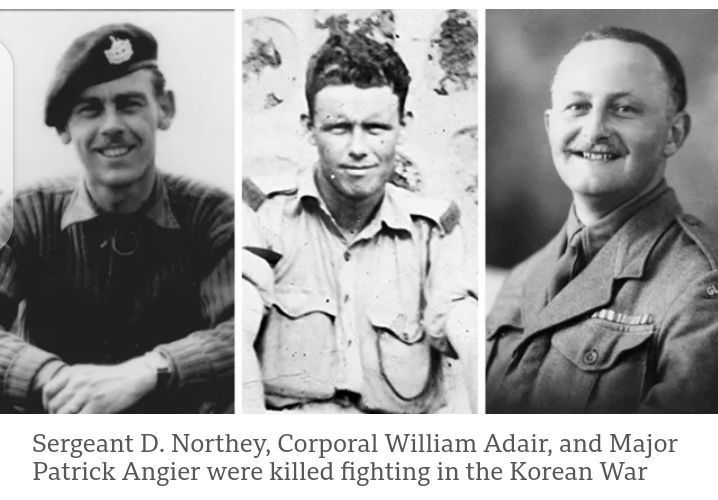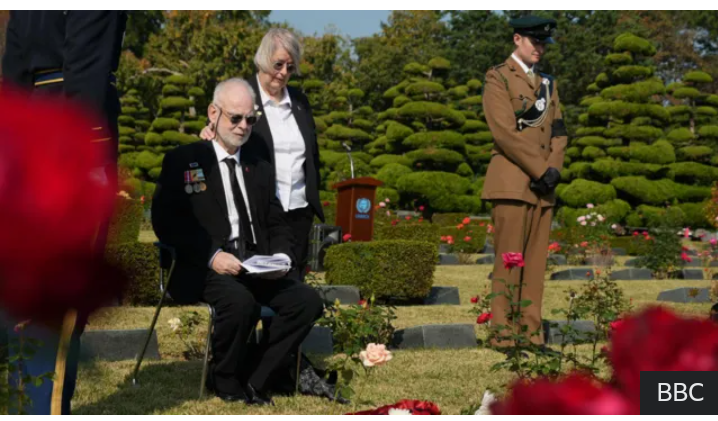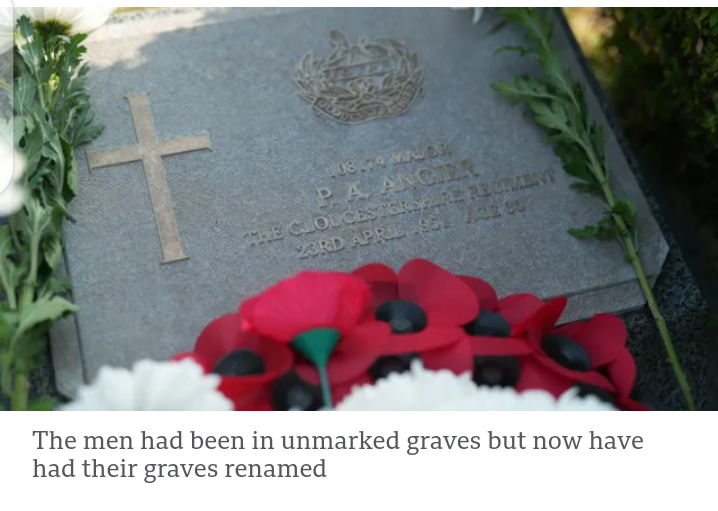Families Reunite With Fallen British Soldiers 70 Years After Korean War.
After decades of uncertainty and unmarked graves, the families of four British soldiers who fell during the Korean War have finally been reunited with their loved ones’ remains. A ceremony in Busan’s United Nations Cemetery saw the graves of Sergeant D. Northey, Corporal William Adair, Major Patrick Angier, and Rifleman Mark Foster renamed, providing long-awaited closure to their families.

Michael Northey, now elderly and seated in a wheelchair, laid a flower at his father Sergeant Northey’s grave for the first time. Born into a modest family in Portsmouth, Michael was just a baby when his father went off to war. For 70 years, he had no idea where his father’s remains lay, but that changed recently thanks to the meticulous efforts of Nicola Nash, a forensic researcher with the Ministry of Defence’s Joint Casualty and Compassionate Centre.

Ms Nash’s work involved combing through burial records, national archives, and eye-witness accounts to identify the men, a task made possible by analysing burial details and family records. “This has been a labour of love,” she said. “To be able to bring closure to families who have spent their whole lives not knowing is indescribable.”

The soldiers, who died during the infamous Battle of the Imjin River in 1951, were once buried with anonymous plaques, bearing only the words “Known unto God.” Their bravery during this battle, where they held off a massive Chinese offensive, allowed allied forces to regroup and defend Seoul. However, in the chaos, their identities were lost, as dog tags were scattered by the enemy.
For Major Angier’s daughter, Tabby, the experience brought back fragments of memory from her childhood. Her father had penned loving letters to his family from the front lines, expressing his longing to return. “People used to say, ‘Oh, those poor children, they’ve lost their father,’” she recalled. “I used to think, if he’s lost, they’re going to find him.” After two previous visits to the cemetery, Tabby had no idea her father lay there all along.
The discovery also resonated deeply with Cameron Adair, 25, who had never heard of his great-great-uncle Corporal Adair until Ms Nash’s findings. Learning of his relative’s sacrifice filled Cameron with pride and inspiration.
Ms Nash is now gathering DNA samples from the families of the remaining 300 missing British soldiers in hopes of identifying more unknown graves. “If there are still British personnel missing, we will keep trying to find them,” she pledged.
This poignant moment has provided the families with a sense of peace and pride, knowing that their loved ones are finally recognised for their sacrifice and bravery on the other side of the world.
Credit: BBC


